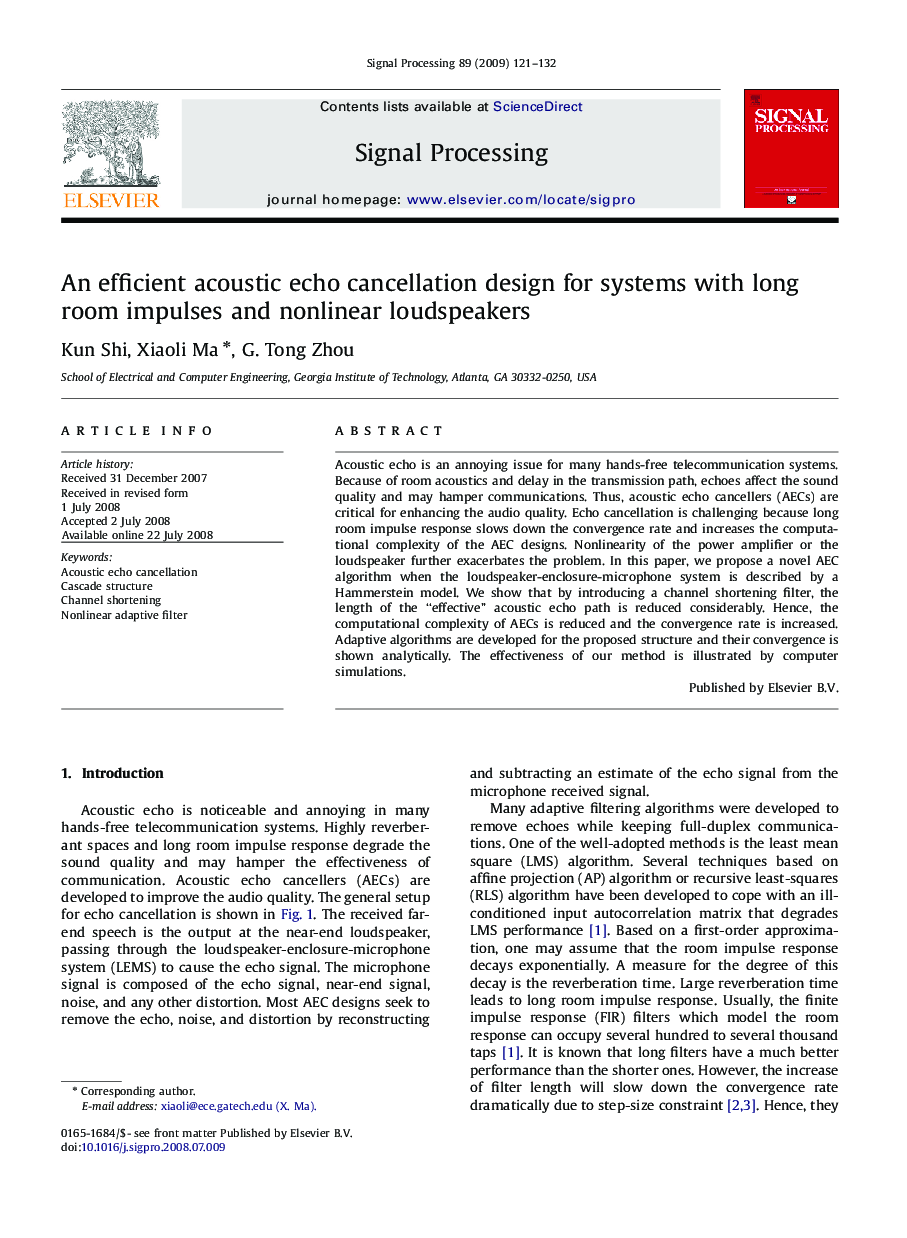| Article ID | Journal | Published Year | Pages | File Type |
|---|---|---|---|---|
| 563930 | Signal Processing | 2009 | 12 Pages |
Acoustic echo is an annoying issue for many hands-free telecommunication systems. Because of room acoustics and delay in the transmission path, echoes affect the sound quality and may hamper communications. Thus, acoustic echo cancellers (AECs) are critical for enhancing the audio quality. Echo cancellation is challenging because long room impulse response slows down the convergence rate and increases the computational complexity of the AEC designs. Nonlinearity of the power amplifier or the loudspeaker further exacerbates the problem. In this paper, we propose a novel AEC algorithm when the loudspeaker-enclosure-microphone system is described by a Hammerstein model. We show that by introducing a channel shortening filter, the length of the “effective” acoustic echo path is reduced considerably. Hence, the computational complexity of AECs is reduced and the convergence rate is increased. Adaptive algorithms are developed for the proposed structure and their convergence is shown analytically. The effectiveness of our method is illustrated by computer simulations.
